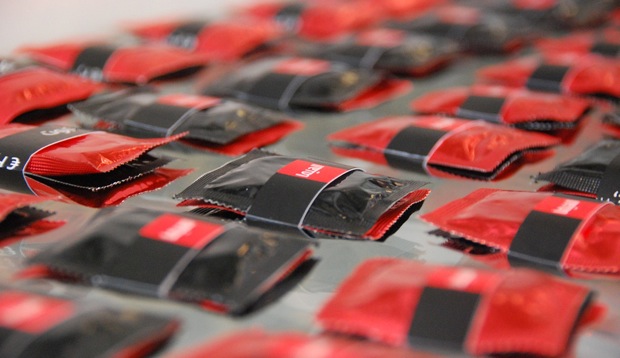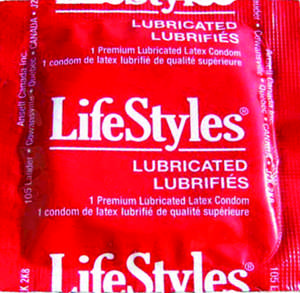“Jersey Shore.” “Glee.” “Sixteen and Pregnant.” “The 40-Year-Old Virgin.” If you have seen any of these television shows or movies, you probably think you know a thing or two about sex, pregnancy and contraception.
And that is just what worries the sexuality experts who spoke at the Contraception Technology Conference on March 25 in San Francisco. The conference was presented by the authors of Contraceptive Technology, who are mainly university professors specializing in contraception and women’s health. The conference attracted over 400 men and women including a number of physicians, health educators, and pharmacists.
Dr. Vic Strasburger, professor of pediatrics at the University of New Mexico School of Medicine, estimated that on television “there are 15,000 sexual references a year” and “less than 10% of them show responsible sexual behaviors.”
”The media is the largest sex educator in America today,” Strasburger said. “It fills the gaps in sex education” that perhaps parents have overlooked.
Media’s influence on teen contraceptive choices
With the media playing such an overwhelming role in sex education, the media will also play a large role in influencing the contraceptive practices of teens. Urban students confirm that television series and movies such as “Gossip Girl” and “Superbad” influence teen perceptions.
“Generally, in sex scenes during movies, you don’t see them putting on a condom unless it is a joke,” says Lily Burns (’11).
“In the media, there is sex everywhere, and those pressures get translated into real life,” says Cali Slepin (’12). “I feel like some people take the media too literally and believe that it is real life.”
Strasburger also pointed to cultural differences around sex education that put American teens behind their international peers. American society is shy about sex and wants to feel guilty about sex, he said, whereas in other countries, such as France and Australia, “when you start having sex, (people say), you will use birth control, and we will provide you with birth control.” In America, however, the message is: “Don’t have sex.”
American society’s squeamish attitudes around sex, which are expressed through TV, education practices, and health policy, may also influence what types of contraception teens try. According to Dr. Alison Edelman, assistant director of the Family Planning Fellowship at Oregon Health and Science University, “teens are using less effective birth control,” such as barrier methods including condoms, instead of pharmaceuticals including the birth control pill.
Often, adults are afraid to help teens get better access to the protection they need. Dr. Robert Hatcher, professor of gynecology and obstetrics at Emory University School of Medicine, and the conference chair, said that making contraceptives available to teens does not necessarily mean that adults are encouraging teens to have sex. It “is not saying I want you to have intercourse,” Hatcher said. “It is saying if you decide to have intercourse, be safe.”
Media literacy at Urban
Here at Urban, the Health Initiative for Peer Education (HIPE) program tries to educate students to decode media messages and point them in the direction of safe sex.
The Urban health class program ensures that all Urban 10th graders focus on media literacy. Jennifer Epstein, HIPE faculty adviser and 9th and 10th grade health teacher, defines media literacy as “learning how to look at different parts of the media and being able to understand the manipulation.” The class involves readings, discussions, and a project where students deconstruct and find hidden messages within popular commercials and TV shows.
Students say the in-depth approach works. “Media literacy helps me interpret and mindfully translate and understand media messages,” said Abigail Vass (’12).
Strasburger also is a promoter of media literacy, given the media’s role in shaping a person’s self-image and understanding of reproductive health. ” ‘Literate,’ 100 years ago meant to read and write. ‘Literate,’ today, means being able to decipher media messages,” Strasburger said.
Although making strides in helping students to decode ads, television, and other media, Urban is still struggling on how to provide its students with contraception. Currently condoms are available to all students, but in order to get them they have to ask Epstein.
However, Epstein says HIPE is thinking about working to improve “access to condoms.”
Balancing parental concerns and student health
Having condoms available at a high school may pose concern to many parents, who feel that having condoms accessible encourages teenage sex. According to Strasburger, however, having an open “fishbowl of condoms at schools does not decrease the age kids start having sex, does not increase the frequency of sex, and does not increase the number of sexual partners.”
Several Urban students believe that Urban is ready to make condoms more accessible. “I think we should have a more open contraception policy, because though not everyone is having sex, those having sex deserve access to proper protection,” said Simone Hudson (’12).
“Urban is a safe place,” observed Virgil Taylor (‘11). “Why can’t we distribute safe things?”


